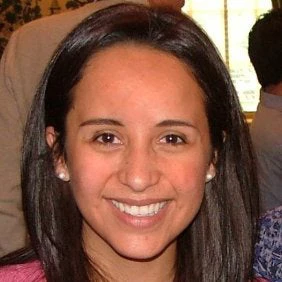 Niña aprendiendo matemáticas con un ábaco en una escuela de la República Dominicana
Niña aprendiendo matemáticas con un ábaco en una escuela de la República Dominicana
Improving learning quality is not only the responsibility of teachers and students . Many stakeholders play an important role in informing educational policies, teaching practices, opportunities for improvement of the educational system, and the impact of educational reforms. The Dominican Republic has taken decisive steps to improve its education system, including developing a national learning assessment system.
In a project of this nature, policymakers, experts and other stakeholders work together to establish learning assessment activities aligned with the information needs of the education sector and promote improvement processes.
Depending on the country context and available resources, activities may take the form of large-scale national and international assessments, high-impact assessments, or formative classroom assessments. In the case of the Dominican Republic, since the signing of the National Pact for Education Reform in the Dominican Republic (2014-2030), various stakeholders part of the education system supported the development and approval of a legal framework under the leadership of the Ministry of Education of the Dominican Republic (Ministerio de Educación de la República Dominicana, MINERD).
These stakeholders included representatives from civil society, academia, private sector, and international organizations with expertise in learning assessment. Together, through a shared vision, they supported the Ministry to advance important reforms to the assessment system of educational quality.
Education as a Priority of Regional Cooperation
Several stakeholders have contributed to support MINERD to improve the learning assessment system and the commitments agreed upon by Dominican society during the National Pact for Education Reform.
In the case of international development organizations, for instance, the World Bank has supported the analysis, dissemination, and use of the national assessments results, as well as the technical training of the Ministry staff, including internships for technical staff in Ecuador, Chile, and Colombia.
In the case of the private sector, the organization Inicia Educación partially financed the strengthening of national assessments and regional technical support on learning assessment topics. Acción Empresarial por la Educación (EDUCA) and the Iniciativa Dominicana por una Educación de Calidad (IDEC) supported dialogue among institutions and civil society and emphasized the importance of learning assessments for the improvement of educational quality. Finally, the Organization of Ibero-American States (OEI) collaborated in the implementation of communication strategies to familiarize schools with assessment efforts such as the national assessments and the Programme for International Student Assessment (PISA).
Something that often goes unnoticed is the strong technical collaboration on educational issues at the regional level. For example, the Colombian Institute for the Evaluation of Education (Instituto Colombiano para la Evaluación de la Educación, ICFES) has supported the Dominican Republic for several years in strengthening its national learning assessments.
This South-South cooperation and knowledge transfer among countries in the Latin America and Caribbean region is a strategic example linked to the development of technical networks that can be replicated in other regions seeking to strengthen their national learning assessment systems and learn from peer countries who have gone through similar processes.
Finally, the organizations behind regional and international assessments, such as the Regional Comparative and Explanatory Study (ERCE), the Program for International Student Assessment (PISA) and the International Civic and Citizenship Education Study (ICCS), have also had an important impact on strengthening national learning assessment systems.
For example, UNESCO's Latin American Laboratory for Assessment of the Quality of Education (LLECE), which has led the design of ERCE, has been instrumental in providing technical support for the training and capacity building of the Learning Assessment Units of the Ministries of Education of the countries in the Latin America and the Caribbean region, as well as for the promotion of a shared culture of educational assessment in the region. In addition, LLECE has played a relevant role in the use of the ERCE results to help report on country progress towards the achievement of the Sustainable Development Goals (SDGs) in education.
Benefits of collaboration in Education
In terms of benefits to society at large, the government of the Dominican Republic now has a body of technical experts implementing and using national assessments results to better inform decision making processes . The government has a better understating of what policies and programs are working to promote learning outcomes and of opportunities to improve quality and equity within the Dominican education system.
There is still room for improvement, for example, in aligning the results from these assessments and the design of teacher training programs for pre-service and in-service teachers. Nevertheless, having information on student learning outcomes has allowed the Dominican Republic to have a clearer picture of its education system before and after the pandemic. This information also contributes to focus efforts where they are needed the most to improve learning outcomes and the quality of education services.




Join the Conversation